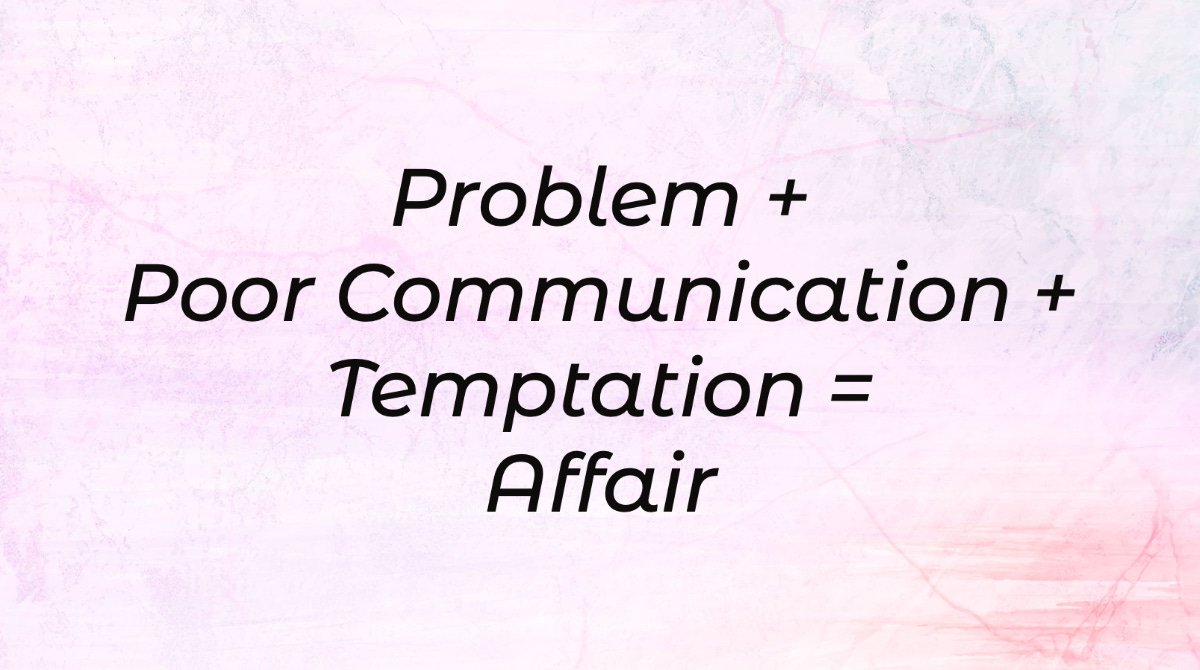Dear Friends,
I have written thousands of pages of advice on the painful topic of infidelity. Sadly, it doesn’t go away. Recently, I’ve been going through a trove of old articles, and I found this one - it has lots of ideas on moving through the pain and making the big decisions.
Kate and Mike are, of course, not a real couple - they bring together aspects of many stories and have names pulled purely from my imagination.
The Story of an Affair
Kate, forty-four, thought her life was good. The family had just moved into a beautiful house in the best part of town and her two daughters, twelve and ten, were doing well at their new school. Her husband Mike, forty-five had a well-paid job and they been together since they were sixteen and seventeen.
‘Beyond a rocky patch, when Mike was away at university, we’ve always got on really well. I truly thought we’d got each other’s backs.’
So when she discovered the receipt for an expensive piece of jewellery in his pocket, she wasn’t suspicious.
‘We were coming up to the anniversary of when we first met. We didn’t normally celebrate it and I wouldn’t describe Mike as romantic but I actually had an awww moment: he’s turning into a softie in his old age.’
However, the anniversary came and went and no present. Kate turned detective and uncovered nights at expensive hotels, meals out and flowers.
‘I still couldn’t believe he would have an affair. He is too honourable and, I suppose, too sensible.’
But when she challenged him with the evidence, he broke down and told her about a younger woman – in her twenties – who worked for him. According to Kate,
“It was the complete cliché. And when I asked him why and what was wrong with our marriage, he told me ‘nothing’ but he’d wondering if he was ‘settling’ and thinking ‘isn’t there more life to life than this?’”.’
What upset her the most, and what she couldn’t get her head round, was that Mike was willing to throw it all away for a bit of excitement.
How Do People Respond to their Partner’s Affairs?
There are three common responses to discovering that your partner has been unfaithful - physically or emotionally, or both.
The first is to blame yourself, forgive them almost immediately and beg them to return.
The second is to freeze the cheating spouse out; making them sleep on the sofa, or packing them off to their mother’s.
While the third - and perhaps the most titillating, certainly when it comes to making good television - is revenge.
I have seen all of these reactions play out over and over in my career - so, what are the up and downsides of each, and is there a ‘right’ way to respond to infidelity?
The causes of infidelity are complex. I have a formula for them, which I share with my clients:
The ‘problem’ could be something that lies squarely with your partner – they lost their job or a parent died - a major life event that they allowed to act as a trigger.
Equally, you are not responsible for keeping your partner away from temptation.
But when it comes to poor communication, there can be shared responsibility. It is helpful to ask: why couldn’t my partner talk to me about their problems?
To them, you might have seemed pre-occupied with children or work. To you, they might have made excuses not to talk or hidden behind jokes.
It is fine to take half the blame for poor communication - but not all of it. Heaping blame on yourself only allows your partner to minimise his or her bad behaviour, not face the full extent of their betrayal - or learn from their mistakes. It might seem like the path of least resistance, but it only gives the illusion of being in control and can leave you feel resentful.
As one client told me:
‘I wanted it to be my fault because that way I could fix things. I could fix me. I could fix him and I could fix us.’
The difficulties of revenge
Revenge gets some pretty bad press. It does, though, have some advantages. Compared with an incomplete and too-rapid forgiveness, you are allowing your natural rage to surface. There is no risk of you sweeping your feelings under the carpet.
The problem comes when a person acts too quickly and rashly on their natural thoughts of revenge. I had one male client who - when he discovered his wife had been unfaithful with her personal trainer - called the man’s employer and had him fired. Unfortunately, this only pushed his wife closer to her lover (she felt responsible for his predicament) and made it impossible to save their marriage.
One wife threw her husband out for having an emotional affair, telling him ‘to never darken her door again’. In case he hadn’t got the message, she threw an ashtray in his direction. Believing his marriage was over, he went straight to the ‘other woman’ for comfort and was then physically unfaithful too – which made everything exponentially more complicated, more painful and more expensive to resolve.
Revenge can all too easily become a race to the bottom. Another man decided to have a tit-for-tat fling on a work trip to show his cheating wife that he had ‘other options’, too. When he told her, she shrugged her shoulders and said: ‘you’ve proved that we can’t make each other happy’ - not the outcome he had wanted.
Arguably, a better approach is to freeze your cheating partner out: this can reduce the risk that you will say or do something you might later regret. It also buys you thinking time. And if you leave the marital home, staying with family or friends, you are surrounding yourself with allies who - should you wish them to - will later go into battle with you.
It is also a very private reaction; where revenge - in all its ‘I don’t care who knows’ fury - is almost always public. This can be damaging for children, who might otherwise not have found out about an affair, or who might be drawn into inappropriate roles like peacemaker, or pushed into taking sides.
So how can I ever recover from this?

Whether you forgive, “freeze out” or wreak revenge, each reaction comes from the same place: pain.
It can be so torturing that you want it to go away immediately, but there is no magic solution - even if it feels like dousing your husband’s sports car in paint will help. Simply, it takes time to go through all the seven stages of recovery (below) and you will have setbacks.
The key is to accept your feelings (‘I’m really hurt’) and challenge your most negative thoughts (‘it doesn’t mean our marriage is doomed’). Soon, you will discover that you can cope with what today brings, and possibly also with tomorrow.
You will learn a lot about yourself, your partner and how to communicate better. That’s a recipe, not for putting a sticking plaster over your old marriage, but for creating a new and better one.
7 steps to recovering after an affair
Disbelief: Even the unfaithful partner will be in shock. The walls between the different parts of your life have collapsed and you must face the full enormity of your, or your partner’s, actions.
Questioning: You stay up half the night trying to make sense of what happened, what it means and why.
Decisions: Only when the shock has worn off and you have all the information, can you make an informed decision whether to stay or go – don’t be pressured into deciding too soon.
Hope: For the first time, it seems like there might be a way forward, but it feels fragile.
Attempted Normality: You want to believe that the crisis is over but it feels like you’re putting on an act.
Bodies Float to the Surface: Long term issues between you and your partner – for example, your dislike of their mother – become urgent. After all the pain, there are no longer any ‘off-limits’ topics.
Learning: If you use this stage to learn to communicate better, you could turn infidelity from the worst thing that’s happened to your marriage into one of the best.
It’s trite and often hugely annoying when people tell you “what doesn’t kill you makes you stronger”. It’s true, too, that not everyone can or has any desire to save their marriage.
But it IS true that the couples who come to my office to work through infidelity are the ones who most often leave with a strong, happy marriage. If you have the resolve to dig up the buried bodies and the strength to make it through a very long journey together, the result is worthwhile.
In other news, over on The Meaningful Life podcast I have been talking to therapist Thom Rutledge about the nature of fear. If you feel like the way you were raised put fear and shame at the centre of all your big decisions, this one’s for you.
Thom and I spoke about the futility of trying to defeat fear. Instead we need to understand it and learn to live with it. Fear can actually play a healthy role in our lives, so long as we keep it out of the driver’s seat.
And as always, if it feels like the right time to start marital therapy, send an email to Tricia (tricia@andrewgmarshall.com) for a virtual or in-person appointment with one of my team of therapists in London, or with me here in Berlin.
With love,
Andrew







